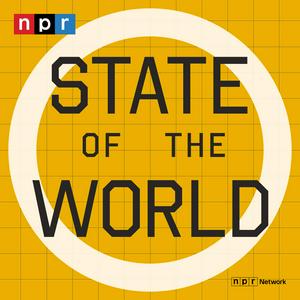The U.S. and Israeli attacks on Iran continue. Meanwhile Iran is retaliating, firing missiles Israel, but also U.S. allies in the Gulf like Bahrain, Kuwait, Saudi Arabia, the UAE and even air bases Cyprus, threatening to expand the conflict. And the Hezbollah militia in Lebanon entered the fight, launching its first attacks on Israel in more than a year.
We get an update on developments throughout the Middle East. And we hear the voices of people experiencing the war. In Iran, there are mixed emotions for some. In Israel, the familiar feeling of needing to rush to shelters as they are under Iranian missile fire.
To manage podcast ad preferences, review the links below:
See pcm.adswizz.com for information about our collection and use of personal data for sponsorship and to manage your podcast sponsorship preferences.
Learn more about sponsor message choices: podcastchoices.com/adchoices
NPR Privacy Policy


